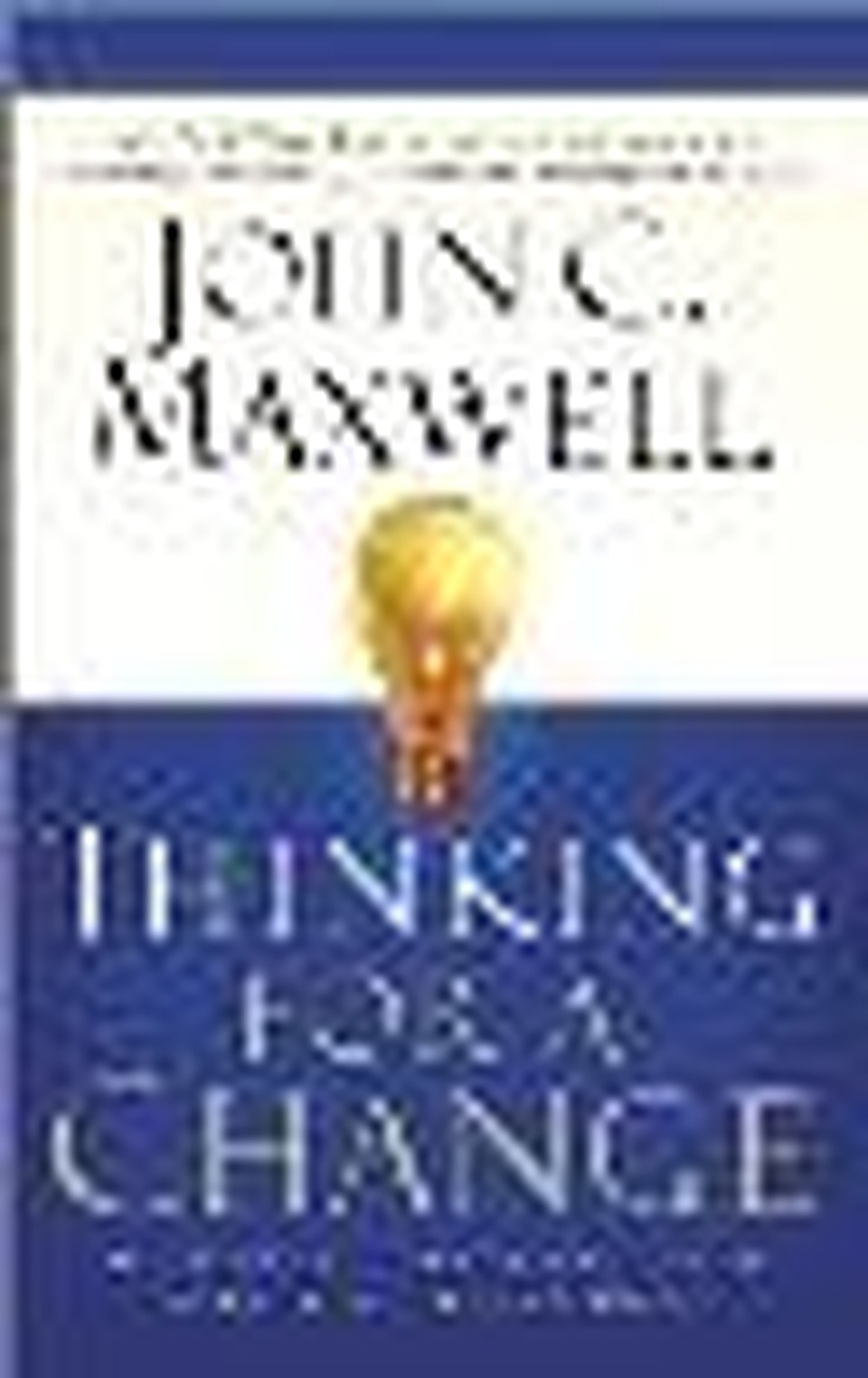Understand the Value of Good Thinking

"Nurture great thoughts, for you will never go higher than your thoughts."
— Benjamin Disraeli
What Were They Thinking?
"Things are more like they are now than they ever were before."
— Dwight D. Eisenhower, thirty-fourth president of the United States
What one thing do all successful people have in common? What one thing separates those who go to the top from those who never seem to get there? The answer: Good Thinking! Those who embrace good thinking as a lifestyle understand the relationship between their level of thinking and their level of progress. They also realize that to change their lives, they must change their thinking.
A Different Way to Think
I've been a student of good thinking all my life, so I know how important it is for making progress. In the first book I wrote back in 1979, titled Think on These Things, I said, "Your life today is a result of your thinking yesterday. Your life tomorrow will be determined by what you think today." The title of that book was inspired by the words of the Apostle Paul, who admonished us,
Whatever is true, whatever is honorable, whatever is just, whatever is pure, whatever is pleasing, whatever is commendable, if there is any excellence and if there is anything worthy of praise, think about these things.
My father, Melvin Maxwell, often quoted those words to me. He felt they were important. Why? Because he is an example of someone who changed his life as a result of changing his thinking.
If you met my dad, he would tell you that he was born with a naturally negative bent to his thinking. In addition, he grew up during the Depression, and when he was six years old, his mother died. He was not a happy or hopeful child. But as a teenager, he began to see that all the successful people he knew had one thing in common: they filled their lives with positive thoughts about themselves and others. He desired to be successful like them, so he embarked on the daily task of changing his thinking. To his delight, after much time and effort, his thinking changed him.
People who know him today see Dad as a totally positive person. They would be surprised to find out that he started his life with a negative mind-set. This change in his thinking allowed him to rise to a level of living that seemed above his potential. He went on to be the most successful person in his professional circle. He became a college president and touched the lives of innumerable people. To this day he is my hero.
Changing from negative to positive thinking isn't always easy, especially if you have a difficult time with change. For some, it's a life-long struggle. Do you know what most people's number one challenge is when it comes to making positive personal changes? It's their feelings. They want to change, but they don't know how to get past their emotions. But there is a way to do it. Take a look at the truth contained in the following syllogism:
Major Premise: I can control my thoughts.
Minor Premise: My feelings come from my thoughts.
Conclusion: I can control my feelings by controlling my thoughts.
If you are willing to change your thinking, you can change your feelings. If you change your feelings, you can change your actions. And changing your actions — based on good thinking — can change your life.
Who Will Change Your Mind?
Most people in our culture look to educational systems to teach them and their children to think. In fact, many individuals believe that formal education holds the key to improving lives and reforming society. James Bryant Conant, chemistry professor and former president of Harvard University, asserted, "Public education is a great instrument of social change…. Education is a social process, perhaps the most important process in determining the future of our country, it should command a far larger portion of our national income than it does today."
Many educators would have us believe that good grades lead to a better life, and that the more formal education you have, the more successful you will be. Yet education often can't deliver on such promises. Don't you know highly educated people who are highly unsuccessful? Haven't you met college professors with Ph.D.s who cannot manage their lives effectively? And conversely, don't you know of dropouts who have become very successful? (Think of Bill Gates, Thomas Edison, Federico Fellini, Steve Jobs.)
William Feather, author of The Business of Life, remarked, "Two delusions fostered by higher education are that what is taught corresponds to what is learned, and that it will somehow pay off in money." Educational reformer and former University of Chicago president Robert M. Hutchins observed, "When we listen to the radio, look at television and read the newspapers we wonder whether universal education has been the great boon that its supporters have always claimed it would be." Perhaps we would be better off if we took the advice of Mark Twain, who said, "I never let my schooling interfere with my education."
The problem with most educational institutions is that they try to teach people what to think, not how to think. Contrary to what Francis Bacon said, knowledge alone is not power. Knowledge has value only in the hands of someone who has the ability to think well. People must learn how to think well to achieve their dreams and to reach their potential.
Copyright © 2003 by John C. Maxwell
Click here to read Part 2
Originally published April 11, 2003.




